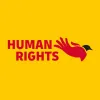Proving DHL Group's cast iron commitment to human rights
DHL Consulting recently helped DHL Group review and revise its existing human rights due diligence process to make the Group best-in-class at managing human rights risks.
It seems an obvious point to make, but every company has a duty to make a commitment to respecting human rights. That’s certainly been central to employee relations at DHL Consulting — and, for that matter, the DHL Group as a whole.
With a workforce comprised of many nationalities and cultures, DHL Consulting’s stance on human rights is in lockstep with the wider Group’s human rights standards. Indeed, by making human rights a vital component of everything it does, DHL Group aims to create a better future for its staff, customers, suppliers and local communities.
This includes rejecting all forms of child labor and forced labor; promoting an inclusive work environment that values the diversity of its employees; respecting employees’ rights to join or not to join a trade union of their choice, free from threat or intimidation; paying workers in line with industry standards and legal requirements and in a timely way; complying with all applicable local laws regarding working hours; making the safety, health and wellbeing of employees of utmost importance; respecting the privacy of all individuals and the confidentiality of any personal data it holds about them; and being committed to environmental protection.
Yet DHL Group wanted to go further than simply statingits commitment to human rights. It wanted to prove it.
So between August 2020 and April 2021, a team from DHL Consulting was excited to work on a project to review and revise the Group’s existing human rights due diligence process. This involved redesigning its components so that DHL Group would become best-in-class at managing human rights risks. The DHLC team was comprised of Project Partner Jana Koch and Assignment Managers Lars Voelkner and Dami Adekoya, and Consultants Suryansh Shrivastava, Cornelius Luetkefels, Ameya Deshmukh and Mariia Sokolova.
Below, Dami and Mariia discuss the genesis of the project, how it evolved — and what it achieved.
What was your remit?
Dami: It’s important to say that our job was not to amend DHL Group’s existing human rights policy statement, which is extensive and complements the Group’s Code of Conduct. Instead, we were tasked with bringing it to life. We divided work into four areas: awareness; risk assessment and mitigation; tracking and reporting; and grievance mechanisms and remedies. The first thing we did was make the Group’s employees more aware of the policy with a range of messages designed to coincide with International Human Rights Day on December 10th. We also created an interactive e-Learning training program covering all fundamental human rights areas with real life examples. This is now compulsory for every executive in the Group — and encouraged for other employees. And, recently, the Group’s Human Rights Portal went live, which includes a collection of video materials, useful links, quizzes and human rights-related training. This is another big step forward for human rights awareness among DHL Group employees.
Human rights is a big topic. Which areas did you focus on?
Mariia: DHL Group Human Rights Policy Statement identifies seven areas that are at risk for DHL Group: child labor, forced labor, diversity and inclusion, freedom of association and collective bargaining, working conditions, data privacy, and environment. We then designed a risk assessment process taking into account external macroeconomic indicators and internally collected data. As part of the internal assessment, we sent out a self-assessment questionnaire to managers in the countries in which the Group operates to check that their teams and were complying with DHL Group’s human rights policy statement in each of these areas. Take the issue of child labor. While DHL Group does not employ anyone below the age of 15, we wanted to ensure that its subcontractors and suppliers had similar standards.
DHL Group operates worldwide. Could some of its sites and facilities present more of a human rights risk than others?
Dami: Yes, potentially. That’s why a big part of the project wasn’t simply identifying risks of human rights violations. It was also identifying locations where these may be most likely to occur. We therefore looked at all countries with a DHL Group presence and, based on externally provided and internally collected data, highlighted the ones where risk of violations may be higher. Facilities at these locations were then prioritized to undergo a human rights audit.
Have human rights auditors been sent to every high risk DHL Group location?
Dami: As consultants, we didn’t get involved in the audit process, which was driven by experts within the wider Group. However, we know that when auditors couldn’t physically get to a particular location, remote auditing took place using the latest technology. For example, a manager wearing smart glasses can walk around a DHL facility so that auditors at Head Office can see everything they need to see, from the types of employee notices available on the noticeboard to the cleanliness of the bathroom facilities.
You also reviewed existing grievance procedures. How can DHL Group employees raise any human rights concerns they may have?
Mariia: We recommended that new channels should be set up and existing ones enhanced to provide comprehensive options for employees to raise grievances. This meant making sure that country/site managers and HR business partners and employee relations representatives knew their responsibilities in this area. It also included signposting an email channel, web service and ‘DHL Group compliance hotline’ telephone service so that employees know these are available to report any issues they may have. It was promoted these using the tagline ‘See It, Say It, Stop It!’
What was the most challenging part of the process for you as consultants?
Dami: Change management. For instance, when we were writing the human rights survey for country managers we received feedback that some questions may be unnecessary because they were so obvious. We were asked: ‘Won’t every DHL Group manager know that they must not keep hold of employees’ personal documents, such as passports and identity cards?’ Yet our argument was that an international company cannot make assumptions about what other countries find acceptable and normal when it comes to human rights. Over time, it was great to see that message being taken on board.
What was it like working on the project?
Mariia: I found it very exciting to review and assess risks to human rights in such a complex global business. It was gratifying to see so many of our recommendations being implemented, with experts in the Group now taking this initiative further and working on it full time.
Dami: Consultants always want to work on purposeful projects that have real meaning. And over my seven years as a consultant no project has provided me with more purpose and meaning than this one. I also loved working with such committed DHLC team members who, 18 months later, are still completely engaged with the topic and so proud of the results they have achieved.

At DHLC, we promote a diverse and inclusive work environment, which reflects our diverse workforce. Our team of consultants is comprised of people from over 30 different countries, with varying cultural, ethnic, religious and social backgrounds, all working together towards a common objective, within an open and inclusive setting.
It’s why we always strive to increase awareness of our conscious and unconscious biases through multiple trainings, discussion forums, and coaching; why we follow due diligence in hiring new employees, and ensure equal opportunities are available to all. That’s as it should be, because human rights are for everyone and are non-negotiable.

